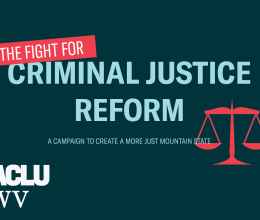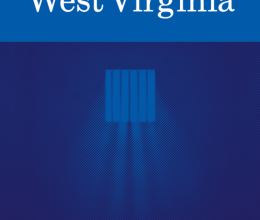Over a year ago, the Parkersburg City Police arrested Charles Kelly for panhandling. Kelly is a disabled veteran, who is unable to work and relies on disability benefits for survival. When those benefits do not cover his modest monthly expenses, he goes to Parkersburg and peacefully holds a sign that says “Disabled Veteran, Please Help. God Bless.”
Many people help Kelly by giving him food or money, or simply wish to learn more about Kelly’s service in the military and his current situation. The city issued Kelly a ticket for $137 for soliciting charity and took his sign. Of course, Kelly could not afford to pay the fine without begging for money and risking another expensive ticket.
In response to the city’s actions, the American Civil Liberties Union of West Virginia filed an action in the U.S District Court in the Southern District of West Virginia claiming that the Parkersburg anti-solicitation ordinance violated the rights of individuals to engage in free speech.
The court, speaking through Judge Joseph R. Goodwin, agreed and issued a preliminary injunction, temporarily stopping the City of Parkersburg and the Parkersburg Police Department from ticketing and prosecuting needy people for peacefully requesting charity in public places. According to Judge Goodwin, the First Amendment precludes the government from punishing individuals for the content of their speech simply because some find the message discomforting. Any legitimate concerns the city has for unsafe or obstructive conduct by a few individuals can be addressed using existing laws that prohibit traffic obstruction or harassment, rather than punishing people for the words they speak or write on signs.
Following the issuance of the injunction and extended negotiations, Kelly and the city settled the case. As part of the settlement, the city agreed to repeal the offending ordinance, which it has done.
Simultaneously with the repeal, however, the Mayor of the City of Parkersburg, Bob Newell, unilaterally ordered to be erected a series of road signs around the city saying “Please do not contribute to the drug and alcohol problem by giving to panhandlers.” These malevolent and defamatory signs are an outrageous reliance on stereotype and are false. Kelly, for example, is neither a drug user nor an alcohol abuser. The signs are a small-minded and retaliatory response to Mr. Kelly’s successful law suit against the city.
The First Amendment extends to all citizens regardless of their financial resources. Prosecuting people because they are poor or homeless and in need of charity is not only wrong, it’s illegal. Retaliating against them when they assert their rights is equally wrong. We hope that those who can help individuals like Kelly, will, and that those exercising control over government institutions will soften their rhetoric and policies regarding the neediest among us.
Robert M. Bastress is the John W. Fisher II Professor of Law at WVU College of Law and served as cooperating counsel on behalf of Charles Kelly. Jennifer Meinig is the Executive Director of the ACLU of West Virginia.
Source: http://www.wvgazette.com/article/20150104/ARTICLE/150109882


